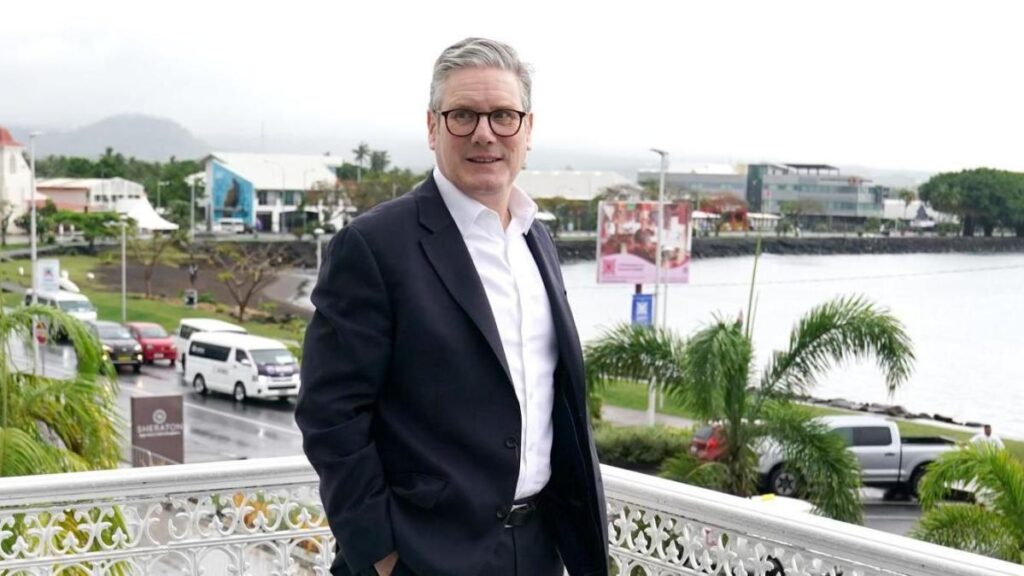The upcoming Commonwealth Heads of Government meeting in Samoa is set to ignite discussions surrounding reparatory justice for the transatlantic slave trade, contrary to the position of the United Kingdom government, which insists the issue is not part of the summit agenda. Reports indicate that diplomatic negotiations are already underway, with Commonwealth leaders expressing a strong desire for open dialogue about the generational impacts of slavery. The draft communique suggests a collective acknowledgment of the need for a “meaningful, truthful, and respectful conversation” towards addressing these historical grievances. Though the UK has attempted to limit discussions on reparative justice, it is evident that this topic is becoming increasingly central to the Commonwealth’s discussions, resonating strongly with member states that share a common history of colonial exploitation.
The reparatory justice debate encompasses various forms, including financial reparations, debt relief, official apologies, educational initiatives, and supports extending to health services and museum establishments. Notably, Caribbean representatives are urging a broader conversation that also considers the experiences of Pacific nations affected by practices like “blackbirding,” where indigenous peoples were forcibly recruited into exploitative labor regimes. This shift signifies a growing recognition among Commonwealth nations of their shared, painful legacies stemming from colonial oppression. The draft communique underscores that many member nations have “common historical experiences” tied to the abhorrent slave trade, setting a precedent that reparations could be a key focus at future gatherings, especially with a potential spotlight at the next summit slated to take place in the Caribbean in two years.
There is intensifying pressure on the UK government to publicly acknowledge its historical role in the slave trade, with some estimates suggesting upward of £18 trillion in reparations might be owed to Caribbean nations alone. The Prime Minister of the Bahamas, Philip Davis, recently articulated a view that the fight for reparatory justice extends beyond mere financial recompense; it is about recognizing and addressing the deep-rooted impacts of historical injustices. The sentiments voiced by Caribbean leaders reflect a unified stance that seeks acknowledgment and reparation not just to benefit affected individuals, but to rectify enduring societal scars stemming from centuries of exploitation.
Despite the UK government’s official position that reparations are off the table, there is growing frustration among Caribbean ministers who feel that the issue will inevitably emerge in discussions, even if it is not formally recognized on the agenda. Various discussions surrounding reparations and historical accountability loom large over the summit, and it has increasingly become a pivotal aspect of Commonwealth engagement, especially amid historic calls for justice that demand to be addressed on an international platform.
While King Charles III and UK officials emphasize contemporary issues like climate change as more pressing concerns during the summit, many nations within the Commonwealth maintain that reconciling with the past is essential for creating a foundation for future collaboration. Although some leaders, including British opposition leader Sir Keir Starmer, express a preference for problem-solving current challenges rather than delving into the complexities of historical reparations, there remains a palpable undercurrent among Commonwealth countries regarding the need for historical accountability as part of addressing modern issues.
Ultimately, the upcoming Commonwealth summit represents a significant moment of dialogue about reparatory justice, with three candidates vying for the Commonwealth Secretary-General position backing the call for reparations. As these discussions unfold, it is clear that addressing historical grievances is intertwined with contemporary initiatives aimed at fostering equity and building a just future for generations to come. The dynamics of the summit may pave the way toward more inclusive policies, enhancing the collective conscience of the Commonwealth while recognizing the lasting legacies of colonialism and slavery.

